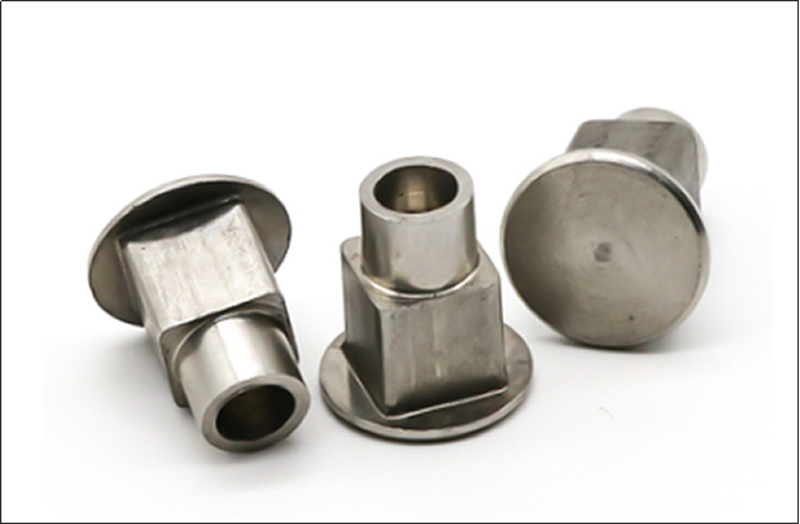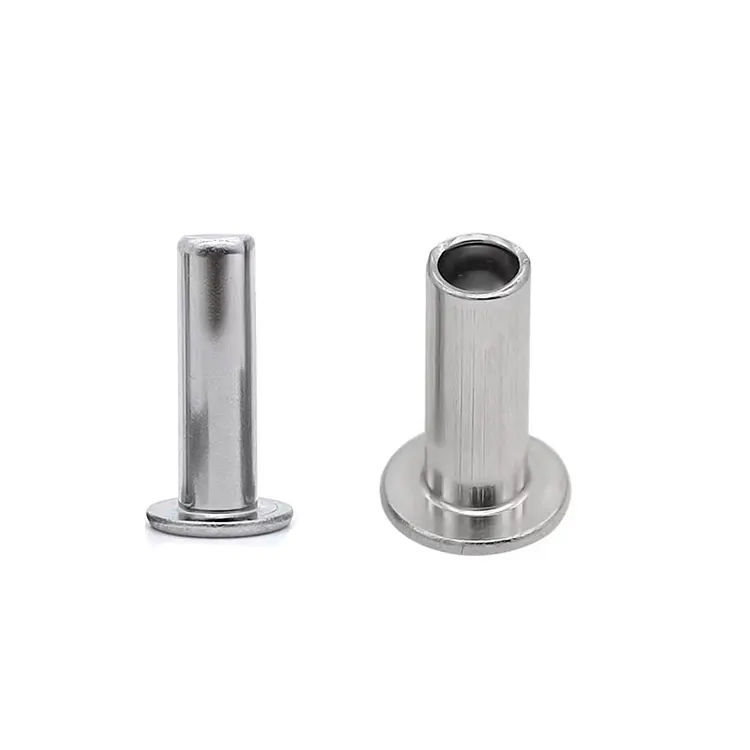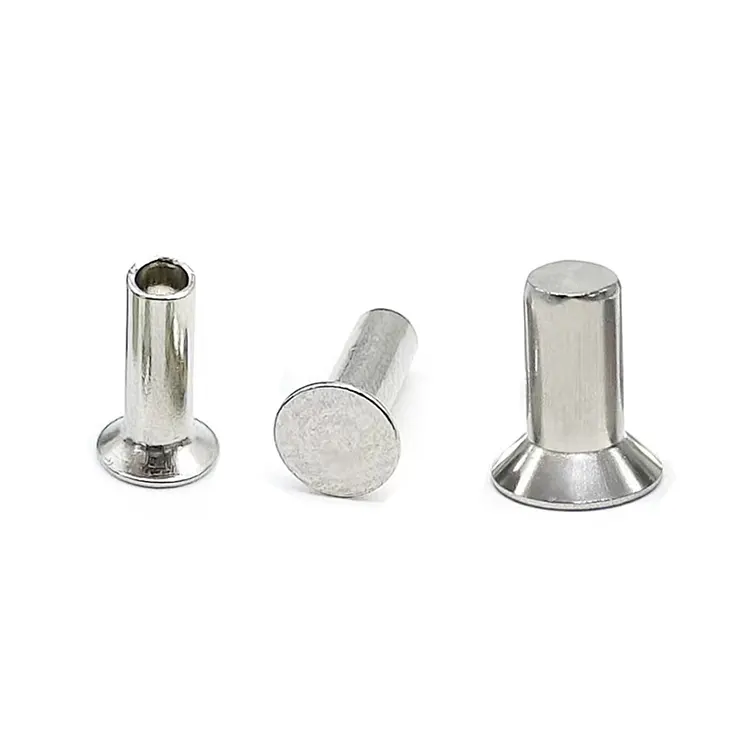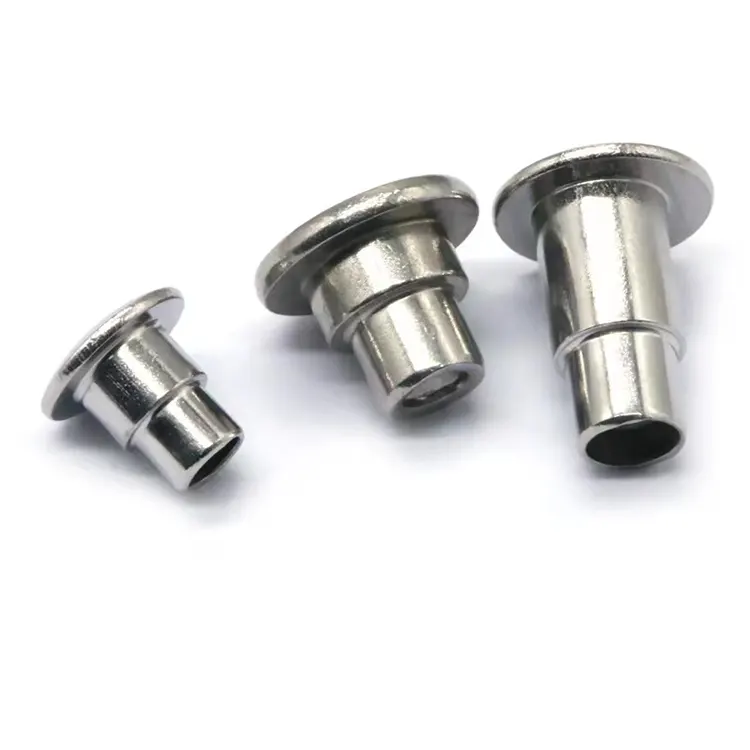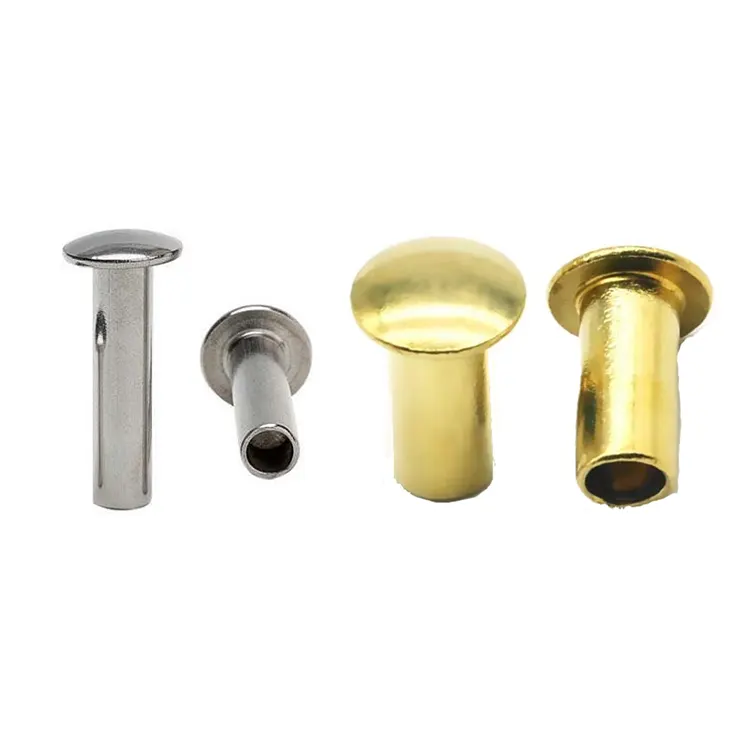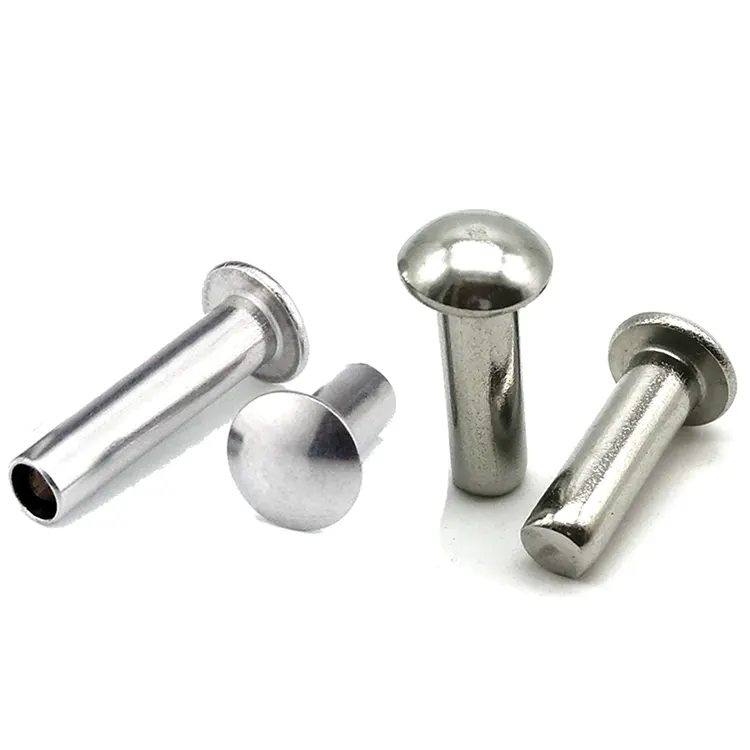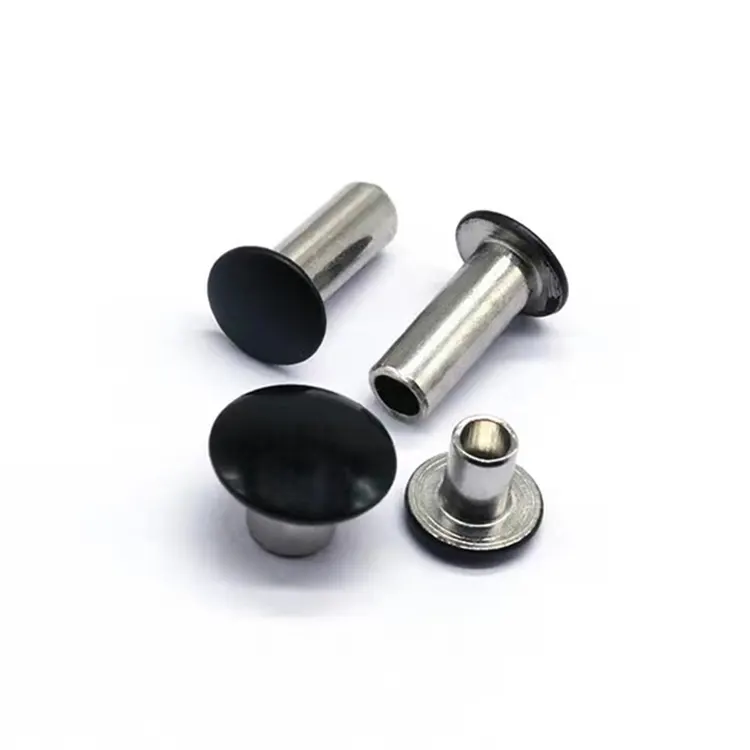Rivets spéciaux
One of Chinese manufacturer of Special Rivets, offering excellent quality at a competitive price, is Notin. Feel free to get in touch.
In the field of mechanical manufacturing and assembly, rivets are a common fastener used to professionally connect two or more parts. According to the degree of standardization, rivets can be divided into two categories: standard rivets and non-standard rivets. The size, shape and material of standard rivets are uniformly specified, while non-standard rivets are customized according to specific needs. The following will introduce the characteristics and applications of non-standard rivets from multiple aspects.
What are non-standard rivets?
Non-standard rivets are also called special rivets. They refer to rivets that do not meet national standards or industry general standards. Their size, material, structure and other parameters are designed and manufactured according to the specific needs of customers. Due to the different connection requirements of different industries and equipment, standard rivets may not meet the requirements of certain special scenarios, so non-standard rivets came into being.
What are the characteristics of special rivets?
(1) Strong customization: Non-standard rivets can be personalized according to factors such as the use environment, stress conditions, and assembly methods to ensure that they perform well in actual applications.
(2) Diverse materials: In addition to common carbon steel and stainless steel, non-standard rivets can also be made of special materials such as aluminum alloy, copper alloy, titanium alloy, etc. to meet different corrosion resistance, strength and weight requirements.
(3) Flexible structure: The structure of non-standard rivets can be adjusted according to needs, such as head shape, stem diameter, length, etc., and can even be designed to be hollow, semi-hollow or other special shapes.
- View as
Rivets à tête plate en acier inoxydable
Nuote Metals est spécialisé dans la production de rivets à tête plate en acier inoxydable. Nous utilisons des matériaux SUS304 ou SUS316L, ce qui donne une surface lisse et sans rayures. Les dimensions sont strictement respectées aux dessins du client et notre service d'inspection de la qualité inspecte rigoureusement l'apparence et les dimensions pour garantir que chaque rivet répond aux spécifications du client. Les rivets à tête plate en acier inoxydable sont principalement fabriqués en acier inoxydable, un alliage connu pour sa résistance à la corrosion, sa résistance aux températures élevées et sa haute résistance. Cela garantit que ces rivets à tête plate en acier inoxydable restent stables même dans des environnements humides, acides ou alcalins, résistant à la rouille ou à la déformation.
En savoir plusenvoyer une demandeRivets à tête fraisée en acier inoxydable
Les rivets à tête fraisée en acier inoxydable sont fabriqués en acier inoxydable pour garantir la résistance à la corrosion et la durabilité. Les matériaux courants en acier inoxydable comprennent le 304 et le 316, et le matériau spécifique à utiliser dépend de l'environnement et des exigences spécifiques de l'application. Nuote Metals se spécialise dans la production de rivets en acier inoxydable, y compris diverses formes de tête, telles que des rivets à tête plate en acier inoxydable, des rivets à tête bombée en acier inoxydable, des rivets à tête champignon en acier inoxydable, des rivets à tête cylindrique en acier inoxydable, et plus encore. Nous apprécions vos demandes.
En savoir plusenvoyer une demandeRivets d'épaule
Nuote Metals fabrique et fournit des rivets à épaulement, nommés pour leur ressemblance avec des marches. Situés à Dongguan, en Chine, nous fabriquons ces rivets dans une variété de matériaux, notamment l'acier inoxydable, le cuivre, le fer et l'aluminium. Tous les rivets à épaulement sont fabriqués selon vos dessins ou échantillons pour répondre à vos besoins spécifiques en matière de rivetage. Nos rivets sont finis avec précision et peuvent s'adapter à une variété de traitements de surface, notamment la galvanoplastie, l'électrophorèse et l'anodisation.
En savoir plusenvoyer une demandeRivets semi-creux
Nuote Metals est un fabricant professionnel de rivets situé à Dongguan, en Chine, une ville industriellement développée avec un transport pratique et une gamme complète de traitements de surface. Les rivets semi-creux sont une fixation couramment utilisée caractérisée par une section creuse au niveau de la tige. Cette conception leur permet de mieux s'adapter à la déformation des matériaux assemblés pendant le processus de rivetage, améliorant ainsi la résistance et la fiabilité des joints. Les rivets semi-creux sont largement utilisés dans les secteurs de l’automobile, de l’aviation et de la construction navale, ainsi que dans l’assemblage d’appareils électroniques et électroménagers.
En savoir plusenvoyer une demandeRivets à tête ronde
Les rivets à tête ronde présentent une conception de tête unique avec une saillie semi-circulaire. Cette structure répartit efficacement les contraintes lorsque le rivet est soumis à une force, améliorant ainsi la stabilité de la connexion. La tête surélevée facilite également le positionnement et l'alignement lors de l'installation. De plus, les rivets à tête ronde offrent une excellente résistance à la corrosion et à la fatigue, conservant ainsi des performances stables dans le temps dans des environnements difficiles. Vous recherchez des rivets fabriqués en Chine ? N'hésitez pas à contacter Nuote Metals, nous avons plus de 10 ans d'expérience professionnelle dans le domaine des rivets.
En savoir plusenvoyer une demandeRivets enduits de poudre
Les rivets colorés, également appelés rivets à revêtement en poudre, sont recouverts d'un revêtement en poudre sur la tête du rivet grâce à un processus de peinture par pulvérisation à haute température. La peinture est séchée uniformément pour garantir une finition qui ne se décolore pas. Ce type de rivet nécessite une grande maîtrise de la cuisson du vernis et une correspondance précise des couleurs. Après rivetage, il crée une couleur cohérente et belle, réalisant pleinement son effet décoratif.
En savoir plusenvoyer une demandeWhat are the characteristics of special rivets?
(1) Strong customization: Non-standard rivets can be personalized according to factors such as the use environment, stress conditions, and assembly methods to ensure that they perform well in actual applications.
(2) Diverse materials: In addition to common carbon steel and stainless steel, non-standard rivets can also be made of special materials such as aluminum alloy, copper alloy, titanium alloy, etc. to meet different corrosion resistance, strength and weight requirements.
(3) Flexible structure: The structure of non-standard rivets can be adjusted according to needs, such as head shape, stem diameter, length, etc., and can even be designed to be hollow, semi-hollow or other special shapes.
Manufacturing process of special rivets
The manufacturing of non-standard rivets involves multiple links, mainly including:
1.Material selection: Select suitable metal or alloy materials according to the use environment. 2. 2.Cold heading or hot heading: Use pressure processing to form the basic shape of the rivet into the metal blank.
3.Turning or milling: Fine-process the details such as the head and stem of the rivet to ensure dimensional accuracy.
4.Surface treatment: Such as galvanizing, nickel plating, anodizing, etc. to improve corrosion resistance or aesthetics.
Advantages and limitations of special rivets
(1) Advantages: They can meet special needs, improve assembly efficiency and connection reliability, and are suitable for complex or high-demand application scenarios.
(2) Limitations: Since they are customized products, the production cost is high, the delivery cycle is relatively long, and customers are required to provide detailed technical parameters.
How to choose suitable special rivets?
(1) Clarify the needs: Determine the key parameters such as the rivet's operating environment, stress conditions, and corrosion resistance requirements.
(2) Material matching: Select the appropriate material based on actual needs to avoid over-design that leads to increased costs.
(3) Communicate with suppliers: Provide detailed technical drawings or samples to ensure that the non-standard rivets produced meet expectations.
What are the main applications of special rivets?
(1) Aerospace: Aircraft, rockets and other equipment have extremely high requirements for the weight, strength and high-temperature resistance of fasteners. Non-standard rivets can be optimized according to specific needs.
(2) Automobile manufacturing: Certain special models or high-performance vehicles may require non-standard rivets to meet the needs of lightweight or high-strength connections.
(3) Electronic equipment: Precision instruments or small electronic equipment may require micro non-standard rivets to ensure the stability and compactness of the connection.
(4) Construction industry: Some special-structured buildings or decoration projects may use non-standard rivets to meet specific installation requirements.
Market status of special rivets
With the advancement of industrial technology, more and more industries have begun to use non-standard rivets to optimize product design. At present, non-standard rivet manufacturers are mainly concentrated in the Yangtze River Delta and Pearl River Delta regions in China, and can provide a variety of customized services. Due to the high unit price of non-standard rivets, its market size is relatively small, but the demand in the high-end manufacturing field continues to grow.
Future development trends
(1) Lightweight design: With the improvement of energy-saving and environmental protection requirements, non-standard rivets made of lightweight materials will be more popular.
(2) Intelligent production: Automated equipment and digital management will further improve the production efficiency and quality stability of non-standard rivets.
(3) Wider application: Emerging industries such as new energy and robotics may drive the growth of demand for non-standard rivets.
In summary, special rivets are highly customized fasteners that can meet special needs that standard rivets cannot meet. Although its production cost is relatively high, it plays an irreplaceable role in industries such as aerospace, automobiles, and electronics. In the future, with the advancement of manufacturing technology, the application scope of non-standard rivets is expected to further expand.






